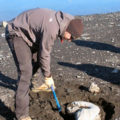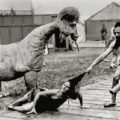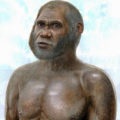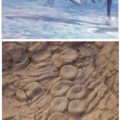
The first-known case of a bone tumor has been discovered in a fragment of the rib of a young Neanderthal who lived about 120,000 years ago in what is now present-day Croatia. The fragment, which comes from the archaeological cave site of Krapina, contains by far the earliest bone tumor ever identified. Bone tumors are exceptionally rare finds in the evolutionary fossil and archaeological records of human prehistory, with the earliest known instances, before now, dating to 1,000 to 4,000 years ago. Penn Museum paleoanthropologist Janet Monge (pictured) has detailed the discovery in a research paper in the journal PLOS ONE.
The Krapina Neanderthal fossil bone collection contains the remains of more than 75 individuals – the largest such collection of Neanderthal remains from one location. The rib, now identified as having the bone tumor, was initially mistakenly identified and placed in a collection of animal remains. In 1999, it was finally identified as a pathological specimen.
More recently, from a u-CT scan and an X-ray, Monge’s team identified a fibrous dysplastic neoplasm – today, the most common form of benign bone tumor in humans – located on a left rib fragment that measured 30 mm long. Judging by the size of the rib fragment, the rib belonged to a young male Neanderthal, probably in his teens. Monge says there is not enough evidence to determine if the tumor was implicated in his death.
Monge believes the discovery may have implications for our understanding of the relationship between Neanderthals and modern humans. “This tumor may provide another link between Neanderthals and modern peoples, links currently being reinforced with genetic and archaeological evidence,” she notes. “Part of our ancestry is indeed with Neanderthals – we grow the same way in our bones and teeth and share the same diseases.”
Related:
Discuss this article in our forum
Gene mutation behind African migration also responsible for modern health woes
Climate change, not humans, wiped out megafauna, say Aussie scientists
Neanderthal nookie notion nixed
Chinese fossils may be new human species








Comments are closed.